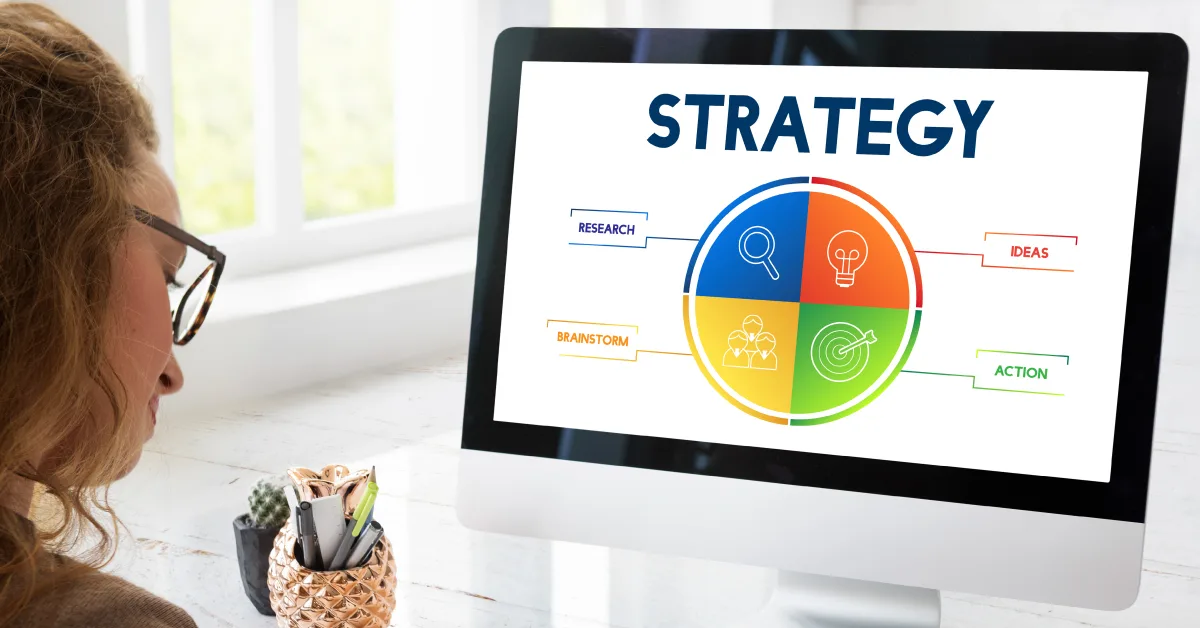10 Tips to Boost Your Online Reputation in 2024
 September 24, 2024
September 24, 2024Online reputation plays a crucial role in today’s business world. With consumers relying heavily on the internet for information, a positive online image can significantly boost a company’s success. Effective reputation management involves a combination of monitoring, engaging, and optimizing to maintain a strong online presence. Implementing these strategies can enhance your brand’s credibility and trust, ultimately driving growth and success.
What is Online Reputation?

Online reputation refers to how a brand or individual is perceived based on their online presence. This encompasses everything from customer reviews and online feedback to social media reputation and public relations efforts. In digital marketing, maintaining a positive online reputation is vital as it directly influences consumer trust and brand credibility.
A strong online reputation can significantly impact a business’s success. For example, companies with excellent customer reviews and positive feedback tend to attract more customers. Conversely, a negative online reputation can deter potential clients and harm brand image. Therefore, effective reputation management strategies are essential for sustaining and improving online credibility.
Top 10 Methods to Improve Your Online Reputation
1. Monitor Online Mentions
Staying updated on brand mentions is crucial for maintaining your online reputation. Utilize tools like Google Alerts and Mention to track when and where your brand is discussed online. Monitoring these mentions helps you address any issues promptly and leverage positive mentions to boost your brand’s credibility.
2. Respond to Customer Reviews
Customer reviews are a significant aspect of online reputation. Addressing both positive and negative feedback shows that you value your customers’ opinions and are committed to improving their experience. Respond professionally and promptly to reviews to foster trust and show that you are attentive to customer needs.
3. Create High-Quality Content
Publishing informative and engaging content is key to enhancing your online reputation. Content marketing not only helps in providing value to your audience but also establishes your brand as an authority in your industry. Regularly update your blog, website, and social media with high-quality content to maintain a positive online presence.
4. Engage on Social Media
Active participation on social media platforms like Facebook, Twitter, and LinkedIn is essential for building a strong online reputation. Engaging with followers, sharing relevant content, and responding to comments helps create a positive brand image and fosters a loyal community.
5. Optimize for Search Engines
Search engine optimization (SEO) plays a significant role in online reputation management. Improving your search visibility ensures that positive content about your brand ranks higher in search results. Use relevant keywords, optimize your website, and create valuable content to boost your online presence.
6. Encourage Positive Reviews
Soliciting reviews from satisfied customers can significantly enhance your online reputation. Encourage your clients to leave positive reviews on platforms like Google, Yelp, and social media. Positive reviews not only improve your brand image but also influence potential customers’ purchasing decisions.
7. Manage Negative Content
Identifying and addressing harmful content is crucial for protecting your online reputation. Develop strategies to push down negative search results and address any false or damaging information promptly. This helps maintain a positive brand image and mitigates potential damage.
8. Collaborate with Influencers
Partnering with industry influencers can boost your brand’s credibility and enhance your online reputation. Find influencers who align with your brand values and can positively represent your business. Collaborations can lead to increased visibility and trust among potential customers.
9. Maintain Consistency Across Platforms
Ensuring consistent branding and messaging across all online platforms is vital for a cohesive online presence. Consistency helps build a strong brand image and makes it easier for customers to recognize and trust your business. Regularly update your profiles and ensure uniformity in your communication.
10. Provide Excellent Customer Service
Customer service plays a pivotal role in reputation management. Delivering excellent customer service can turn satisfied customers into brand advocates. Implement best practices such as prompt responses, personalized interactions, and resolving issues efficiently to enhance your reputation.
By incorporating these strategies, you can effectively manage and improve your online reputation, ensuring your brand remains credible and trusted in the digital space.
Developing an Online Reputation Management Strategy

Creating an effective strategy for managing your online reputation involves several key steps. Here’s how to develop a robust plan:
1. Set Clear Goals and Objectives
Begin by defining what you aim to achieve with your online reputation management efforts. Goals might include:
- Increasing the number of positive customer reviews.
- Enhancing your brand’s social media reputation.
- Improving search engine rankings.
2. Identify Key Metrics to Track
To measure your progress, identify specific metrics to monitor. Key performance indicators (KPIs) could include:
- Number of positive reviews.
- Engagement rates on social media.
- Rankings in search engine results.
3. Develop a Comprehensive Plan
Create a detailed plan that outlines the actions you will take to manage and improve your online reputation. Your plan should include:
- Monitoring online mentions and feedback.
- Responding to customer reviews promptly.
- Publishing high-quality content regularly.
- Engaging with your audience on social media.
- Implementing SEO strategies to enhance visibility.
4. Be Flexible and Adaptable
The digital landscape is constantly changing, so your reputation management plan should be flexible. Be prepared to adjust your strategies based on new trends, feedback, and the evolving needs of your brand.
5. Implement and Monitor
Put your plan into action and continuously monitor your progress using the identified KPIs. Regularly assess the effectiveness of your strategies and make necessary adjustments to ensure you are meeting your goals.
By following these steps, you can develop a solid online reputation management strategy that enhances your brand’s credibility and trustworthiness.
Tools for Monitoring and Managing Online Reputation
| # | Tool | Features | Price | Link |
|---|---|---|---|---|
| 1 | Brand24 | Monitoring mentions, sentiment analysis, reporting | Starts at $49/month | Brand24 |
| 2 | Hootsuite | Social media scheduling, monitoring, analytics | Starts at $19/month | Hootsuite |
| 3 | Reputology | Review monitoring, response management, reporting | Starts at $25/month | Reputology |
Several tools can help you monitor and manage your online reputation effectively. Here are some popular options:
1. Brand24
Brand24 allows you to track mentions of your brand across the web, providing real-time notifications whenever your brand is mentioned. This tool helps you stay on top of online feedback and respond promptly, enhancing your online credibility and brand reputation.
2. Hootsuite
Hootsuite is a powerful social media management tool that enables you to monitor and engage with your audience across multiple platforms. It helps you track social media reputation, schedule posts, and analyze performance, making it an essential tool for reputation management.
3. Reputology
Reputology specializes in monitoring online reviews, allowing you to manage customer feedback from various review sites. It provides insights into customer sentiment and helps you address negative reviews quickly, improving your brand image and online reputation.
When selecting tools for your online reputation management, consider the specific needs of your brand and the features offered by each tool. Investing in the right tools can significantly enhance your ability to manage and improve your online presence.
Measuring the Impact of Your Reputation Management Efforts
| # | Metric | Definition | Importance |
|---|---|---|---|
| 1 | Mentions | Number of times your brand is mentioned online | High |
| 2 | Sentiment | Overall sentiment of mentions (positive, negative, neutral) | High |
| 3 | Review Ratings | Average rating across review platforms | Medium |
| 4 | Engagement | Interactions on social media and other platforms | Medium |
To ensure your online reputation management efforts are effective, it’s important to measure their impact regularly. Key performance indicators (KPIs) such as the number of positive reviews, social media engagement rates, and search engine rankings can provide valuable insights into your progress.
Analyze the data collected from these KPIs to make informed decisions about your reputation management strategy. Look for trends and patterns that indicate areas of success and areas needing improvement. This analysis will help you adjust your strategy to achieve better results.
Continuous improvement is crucial for maintaining a strong online reputation. Regularly update your reputation management plan based on the insights gained from your KPI analysis. By staying proactive and adapting to changes, you can ensure your brand’s online reputation remains positive and credible.
Conclusion

Maintaining a positive online reputation is essential for business success in the digital age. By implementing effective reputation management strategies, monitoring key metrics, and continuously improving your approach, You can rely on Content Whale’s services to keep your brand credible and trusted. Start implementing these strategies today to boost your online reputation and drive business growth.
FAQs
1. How can I monitor my online reputation effectively?
Utilize tools like Brand24, Hootsuite, and Reputology to track online mentions, social media engagement, and customer reviews.
2. What should I do if I receive a negative review?
Respond promptly and professionally to negative reviews, addressing the customer’s concerns and demonstrating your commitment to improving their experience.
3. Which tools are best for managing online reputation?
Brand24, Hootsuite, and Reputology are popular tools for monitoring and managing online reputation effectively.
4. How often should I update my online reputation management strategy?
Regularly update your strategy based on KPI analysis and changes in the digital landscape to ensure continuous improvement.
5. Can social media really impact my online reputation?
Yes, active participation and engagement on social media platforms can significantly enhance your social media reputation and overall online presence.

